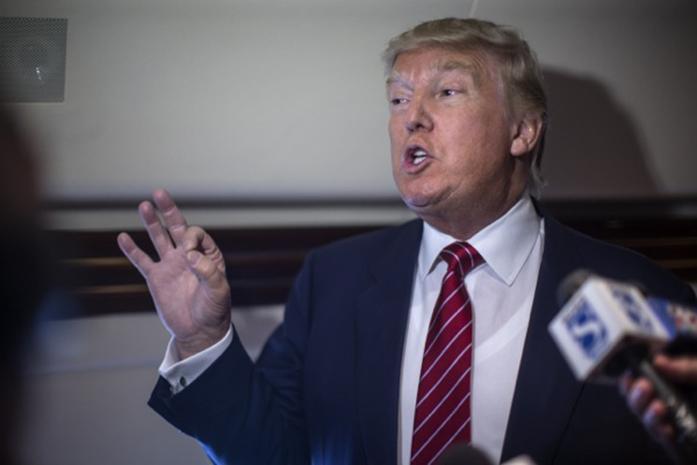Paul Osgerby
[email protected]
At this point, I don’t think I even need to mention his name for people to recognize whom I’m talking about. After another spat with journalists, compounded with further racially charged anti-Mexican sentiments, the man that continues to top the Republican polls has potentially revealed the threat his theoretical presidency could bring to media.
As a journalism student entering the final semester of my undergraduate career, I’ve found myself world-wearied by the procedure of reportage — at times, even jaded. Can news ever be objective or objectively reported when gatekeeping is present along every step between the primary source and the reader?
Well, Donald Trump has embodied a new incarnation of gatekeeping with his recent revival of trash-talking Fox’s Megyn Kelly, but more so with his ejection of Univision’s Jorge Ramos during a press conference in Dubuque. He physically expelled the under-fire, yet critically acclaimed, journalist for attempting to pose a question without being called on. Ramos cited his removal as an infringement on his First Amendment rights as a reporter, and he is certainly in the right.
The grim reality is that Trump’s deport-and-ask-questions-later immigration mentality has manifested itself within his response to press outlets he believes are inadequate or recapitulate the proverbial “liberal media bias.”
As a result, the presidential candidate can create a more opaque veil between his policies and rhetoric (he still hasn’t committed to outlining a genuine immigration plan, by the way). The real detriment, though, is his current practice of handpicking the members of the press to address, which allows him to directly alter the flow of news dissemination.
Within the current top-down framework, particularly present in political journalism, Trump’s sentiment becomes problematic for authentic reportage, while taking advantage of this established system. Often self-cited as the Fourth Estate, journalism particularly prides itself on political coverage, operating a wide scope from investigating public officials, such as Hillary Clinton and her email scandal, to public institution (mal)practices from likes of Watergate to whistleblowers, Edward Snowden and Julian Assange.
However, Trump has overridden this system, generating a pitter-patter of sellable quotes that aren’t concerned with presidential policy, but with garnering top hits of Google searches.
I once embraced the idea of how citizen journalism (one of the banes of journalism education, it seems, as reported in the classroom) could radically shift the paradigm into a bottom-up scheme. The problem: bottom-up isn’t conducive to the current political machine.
As sociologist Herbert Gans, author of Deciding What’s News, points out in an article for the Nieman Lab, politicians largely don’t concern themselves with citizens, except regarding votes, and journalists aren’t the greatest public servants either, acting as another step of gatekeeping through deciding what holds news value. However, if we place more emphasis on citizen journalism, then the current structure will eradicate the Fourth Estate as we know it by means similar to Trump’s.
Gans’ solution is for journalism to begin reporting “citizen news,” or stories about the people for the people to highlight pertinent concerns. By introducing this concept, journalism no longer needs to neither subscribe to a top-down reportage model nor adopt a bottom-up interpretation. For the sake of journalists like Ramos, who was held at the gates of the Trump colossus largely because of racially charged sentiments, the industry must cannibalize itself into an assimilation of both models in order to preserve the sanctity of what I’ve spent so much thought conflicted about: reportage.









